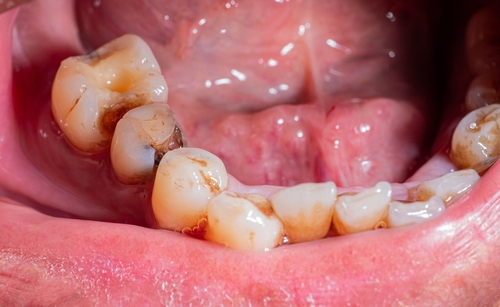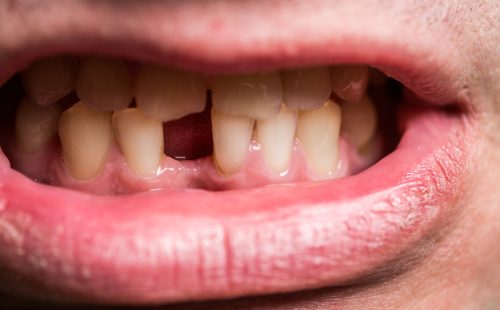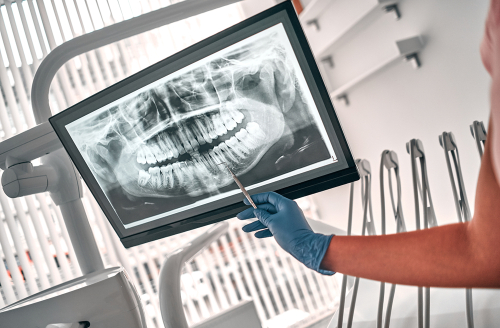
How Smoking Affects Oral Health
April 1, 2024
The Role of Fluoride in Preventing Tooth Decay
June 26, 2024Common Dental Problems and How to Prevent Them

Common Dental Problems and How to Prevent Them
Common Dental Problems and How to Prevent Them. Oral health plays a crucial role in overall well-being, affecting not only our ability to eat and speak but also our self-esteem and general health.
Common dental problems can significantly impact daily life and long-term health if not properly addressed. This article aims to identify prevalent dental issues and provide practical prevention tips to maintain optimal oral health.
Tooth Decay
Table of Contents

Tooth decay, also known as dental caries or cavities, is the destruction of the tooth enamel caused by acids produced by bacteria in the mouth.
When these acids break down the hard tissues of the teeth, they create holes or cavities. Common causes of tooth decay include poor oral hygiene, frequent consumption of sugary foods and drinks, and insufficient fluoride intake.
Prevention Tips
Regular Brushing and Flossing
Brushing your teeth at least twice a day and flossing once daily are essential practices to remove plaque and food particles.
Use fluoride toothpaste and a soft-bristled toothbrush to prevent enamel erosion and gum damage.
Limiting Sugary Foods and Drinks
Sugary and acidic foods and beverages contribute to tooth decay. Reducing their intake and drinking water after consuming them can help minimize their harmful effects. Opt for healthier snacks like fruits, vegetables, and cheese.
Regular Dental Checkups
Visiting the dentist every six months for cleanings and checkups is vital. Professional cleanings remove tartar and plaque that regular brushing cannot, and checkups help identify early signs of decay.
Fluoride treatments and dental sealants can provide additional protection.
Gum Disease

Gum disease, including gingivitis and periodontitis, is an infection of the tissues that support the teeth.
It starts with plaque buildup on the teeth and progresses to more severe forms if untreated. Common causes include poor oral hygiene, smoking, diabetes, and certain medications.
Prevention Tips
Maintaining Good Oral Hygiene
Brushing and flossing daily to remove plaque is crucial for preventing gum disease. Using an antimicrobial mouthwash can further reduce bacteria in the mouth.
Regular Dental Visits
Routine dental cleanings are essential for removing tartar and detecting early signs of gum disease. Early intervention can prevent the progression to more severe stages.
Healthy Lifestyle Choices
Quitting smoking and managing stress can significantly reduce the risk of gum disease. A balanced diet rich in vitamins and minerals, especially vitamin C and calcium, supports gum health.
Bad Breath (Halitosis)

Halitosis, or chronic bad breath, is often caused by poor oral hygiene, food particles trapped in the mouth, dry mouth, gum disease, and certain foods like garlic and onions. Smoking and some medical conditions can also contribute to bad breath.
Prevention Tips
Proper Oral Hygiene
Brushing and flossing to remove food particles and plaque is essential. Cleaning the tongue daily with a tongue scraper or toothbrush helps eliminate odor-causing bacteria.
Staying Hydrated
Drinking plenty of water keeps the mouth moist and helps wash away food particles and bacteria. Chewing sugar-free gum can also stimulate saliva production.
Regular Dental Checkups
Frequent dental visits can help identify and treat underlying issues causing bad breath, such as gum disease or cavities.
Avoiding Tobacco Products
Tobacco products contribute to bad breath and overall poor oral health. Quitting smoking can improve breath and reduce the risk of gum disease and oral cancer.
Tooth Sensitivity

Tooth sensitivity involves discomfort or pain in teeth when exposed to hot, cold, sweet, or acidic foods and drinks. It can be caused by worn tooth enamel, exposed tooth roots, cavities, cracked teeth, or gum disease.
Prevention Tips
Using Desensitizing Toothpaste
Special toothpaste for sensitive teeth can help block pain signals from the tooth surface to the nerve.
Avoiding Acidic Foods and Drinks
Limiting the intake of acidic foods and beverages can prevent further enamel erosion and sensitivity. Rinsing the mouth with water after consuming acidic items can help.
Practicing Gentle Oral Care
Using a soft-bristled toothbrush and avoiding vigorous brushing can protect enamel and gums. Gentle brushing techniques are crucial for maintaining oral health without causing damage.
Regular Dental Checkups
Routine dental visits can help address the underlying causes of sensitivity, such as cavities or gum disease, and provide treatments to alleviate discomfort.
Tooth Erosion

Tooth erosion is the loss of tooth enamel due to acid attack. Common causes include acidic foods and drinks, acid reflux, and dry mouth. Erosion can lead to sensitivity, discoloration, and an increased risk of cavities.
Prevention Tips
Limiting Acidic Foods and Drinks
Reducing the intake of acidic foods and beverages, such as citrus fruits, sodas, and wine, can help prevent enamel erosion. Rinsing the mouth with water after consuming these items can also be beneficial.
Using a Straw
Drinking acidic beverages through a straw can minimize contact with teeth, reducing the risk of enamel erosion.
Chewing Sugar-Free Gum
Chewing sugar-free gum stimulates saliva production, which helps neutralize acids and protect enamel.
Regular Dental Checkups
Regular dental visits can help monitor and manage tooth erosion. Your dentist can provide treatments to strengthen enamel and prevent further damage.
Toothaches and Dental Emergencies

Toothaches are pain in or around a tooth caused by issues like cavities, gum disease, infections, or cracked teeth. Dental emergencies require prompt attention to prevent further complications.
Prevention Tips
Maintaining Good Oral Hygiene
Brushing, flossing, and using mouthwash regularly can prevent many dental problems that lead to toothaches.
Regular Dental Checkups
Routine dental visits allow for early detection and treatment of problems, preventing them from escalating into emergencies.
Wearing Protective Gear
Wearing mouthguards during sports can prevent tooth injuries. It’s important to protect teeth from impact and damage.
Avoiding Hard Foods
Chewing on hard objects like ice or popcorn kernels can crack or damage teeth. Avoiding these items can prevent dental emergencies.
Oral Cancer
Oral cancer develops in the tissues of the mouth or throat. Common causes include smoking, heavy alcohol use, HPV infection, and sun exposure for lip cancer.
Prevention Tips
Avoiding Tobacco and Limiting Alcohol
Quitting smoking and reducing alcohol consumption can significantly lower the risk of oral cancer.
Practicing Good Oral Hygiene
Maintaining a clean mouth reduces risk factors associated with oral cancer. Regular brushing, flossing, and dental visits are essential.
Regular Dental Checkups
Routine dental visits can help with early detection of oral cancer. Dentists can identify suspicious areas and recommend further evaluation if needed.
Protecting Lips from the Sun
Using lip balm with SPF protects lips from harmful UV rays, reducing the risk of lip cancer.
Common Dental Problems and How to Prevent Them – Conclusion

Common dental problems such as tooth decay, gum disease, bad breath, tooth sensitivity, tooth erosion, toothaches, and oral cancer can significantly impact overall health and quality of life.
Preventive measures, including maintaining good oral hygiene, regular dental checkups, and adopting healthy lifestyle choices, are crucial in preventing these issues.
By following the tips outlined in this article, you can maintain a healthy mouth and enjoy better overall well-being. Get started today!
Are you seeking a professional and reliable dentist in Singapore? Contact us today!




